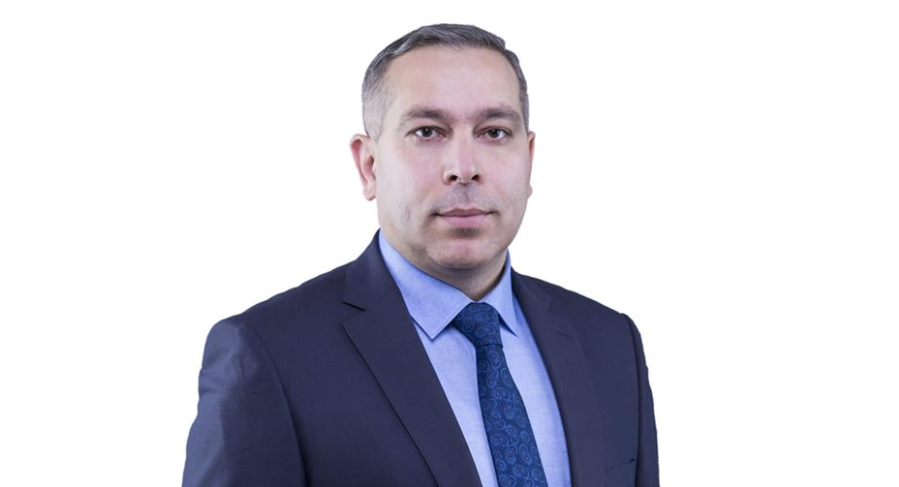- Yazarlar
- 22 May 22:44
- 24 892
A short response to the Armenian MFA spokesperson

The Spokesperson of the Ministry of Foreign Affairs of Armenia, Ani Badalyan, stated that there is no "Western Azerbaijan" within the territory of the Republic of Armenia.
"Western Azerbaijan refers to the western regions of the Republic of Azerbaijan," she said in response to a query by the Armenpress agency regarding Azerbaijani President Ilham Aliyev's remarks on the right of return for Azerbaijanis expelled from Armenia.
According to the agency, such statements by Azerbaijan are perceived in Armenia as territorial claims:
"As Armenian Prime Minister Nikol Pashinyan mentioned in an interview with the Turkish media in March this year, Baku refers to approximately 60-70% of the sovereign territory of the Republic of Armenia as 'Western Azerbaijan.'"
The Armenian Foreign Ministry spokesperson further stated, "This issue is not a subject of discussion for the Armenian side."
First, let us examine the statement by President Aliyev, which has drawn the attention of the Armenian media.
President Ilham Aliyev's remarks were widely covered by Azerbaijani media, and he explicitly stated:
"Armenia must clearly state when and under what conditions Western Azerbaijanis will be able to return to their ancestral lands. In this regard, we expect the Armenian leadership to meet with representatives of the community.
I would like to specifically emphasize that the desire of Western Azerbaijanis to return does not constitute a territorial claim against Armenia, and Armenia must cease its attempts to present it in this manner. This issue will remain on Azerbaijan's agenda until the return is realized. Naturally, security guarantees must be provided to the Western Azerbaijanis who will return to their homeland."
As seen, the spokesperson of the Armenian Ministry of Foreign Affairs and the Armenian media distort President Ilham Aliyev's speech, divert attention from the essence of Baku's stance, and prefer not to provide a concrete response to Azerbaijan's proposals.
Therefore, it is necessary to approach the issue from several perspectives.
From a historical perspective, the current territory of the Republic of Armenia was established on the lands of Northern Azerbaijani khanates. After the Russian Empire's conquest of the Caucasus, Azerbaijani khanates were abolished, various administrative reorganizations were conducted, and the demographic composition of the present-day Armenian territory was altered by the settlement of Armenians relocated from Iran. Despite this, hundreds of thousands of Azerbaijanis lived in Armenia during both the Tsarist and Soviet periods, with the last forced expulsion occurring in 1988.
Today, Azerbaijan and President Ilham Aliyev are creating a political perspective to ensure the return of Western Azerbaijanis to their ancestral lands. As seen in the above statement, President Ilham Aliyev’s "Western Azerbaijan" concept is based on international norms and principles, emphasizing the right of Azerbaijani refugees to return to their native lands. Interpreting this right of return as a territorial claim against Armenia is, at best, diplomatic insolence.
Azerbaijan’s legal approach to the issue is both solid and robust. International law, declarations, including the Geneva Conventions, guarantee the return of refugees, the preservation of their historical cultural heritage, and the protection of their fundamental human rights and freedoms. What is required from Armenia is to recognize and implement the right of return for Western Azerbaijanis within the framework of international law. Confusing or attempting to confuse the right of return with sovereignty and territorial integrity is nothing short of prejudice and ignorance.
It is unfortunate that Armenian diplomats like Ani Badalyan often mask their lack of knowledge with antagonistic rhetoric against Azerbaijan. Thus, the first question Ani should be asked is this: If "Western Azerbaijan" does not exist, why was the name "Badal" given to her ancestors, as reflected in her surname?
In conclusion, Armenia's irritation with the terms "Western Azerbaijan" and "Western Azerbaijanis" has no historical, political, or legal basis. The evident reality is that Armenia’s political elite is unwilling to abandon its fascist stereotypes, build a multicultural society, or coexist with other nations. Such a mentality among Armenians in the 21st century offers no prospects for peace and cooperation in the region.
Taleh SHAHSUVARLI,
Chief Editor of AzNews.az analytical-information portal







